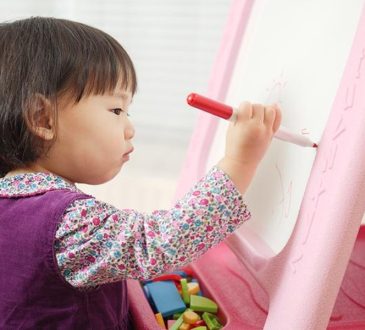
Early childhood education serves a foundational role in a child’s development, rather than being solely a preparatory stage for primary school. It provides the critical foundation for a child’s lifelong development, influencing their cognitive, emotional, and social growth. In Singapore, this field has gained significant attention for its role in shaping future-ready individuals from a young age.
1. Early Experiences Influence Brain Development
Research consistently shows that the early years are when the brain forms most of its neural connections. Stimulating environments, consistent routines, and positive relationships during this time lay the groundwork for how children absorb information later in life. A structured early childhood education programme provides guided play, language exposure, and interaction with peers. Each of these elements is essential for healthy brain development. Many parents seek out information about early childhood education courses to better understand how trained professionals implement these methods.
2. Social Skills Begin Before Primary School
Children start learning how to manage emotions, solve conflicts, and cooperate with others well before they enter formal schooling. A well-designed early childhood education programme provides the social context in which these skills are nurtured. Teachers are trained not only to deliver academic instruction but also to model and guide behaviours that encourage empathy and resilience. Learning about early childhood education course content often highlights how these programmes prepare children to enter primary school with confidence in social environments.
3. Language and Literacy Foundations Are Set Early
Exposure to reading, storytelling, and verbal interaction from a young age significantly impacts future literacy success. Structured early childhood classrooms embed these elements into everyday routines, ensuring children are not only listening and speaking but also learning the building blocks of reading and writing. For parents or caregivers interested in enhancing these capabilities at home, exploring more about early childhood education course modules can provide insights into evidence-based strategies.
4. Early Educators Are Specialised in Child Development
Unlike general educators, early childhood professionals focus specifically on the developmental stages from infancy through age six. Their training includes child psychology, play-based pedagogy, and classroom management tailored for young learners. Institutions that offer courses about early childhood education often highlight how these skills differ significantly from those needed in later school stages. The emphasis is on supporting developmental milestones while encouraging curiosity and exploration.
5. Parental Involvement is Strengthened Through Professional Guidance
Many early childhood programmes maintain a close connection with families, recognising that learning does not stop at the classroom door. Teachers share developmental updates, suggest at-home activities, and build routines in collaboration with parents. Family engagement is a central and non-negotiable component for student success within early childhood education frameworks. In Singapore, this partnership model is widely promoted in preschools and child care centres.
6. Early Intervention Is More Effective Than Later Remediation
Identifying developmental delays or learning difficulties early makes a significant difference in long-term outcomes. Early childhood educators are trained to observe and assess such challenges using standardised developmental benchmarks. Programmes that include modules about early childhood education course design typically cover how and when to refer children for additional support services. Early identification leads to earlier assistance, reducing the chance of long-term learning gaps.
7. Children Learn Through Play When Guided Effectively
For young children, play serves as a primary and essential vehicle for learning. In early childhood education, play is carefully structured to promote problem-solving, motor coordination, and cooperation. Teachers use play scenarios to introduce numeracy, science, and emotional vocabulary in ways that feel natural to young minds. Understanding this process is often a key takeaway for those who enrol in or inquire about early childhood education courses.
Conclusion
The early years provide a rare window of opportunity to influence a child’s path toward lifelong learning and well-being. Viewing early childhood education as a strategic investment in human potential is a core tenet of Singapore’s national policy, elevating it from a mere service to a foundational pillar. From building emotional resilience to strengthening cognitive skills, its impact reaches far beyond the classroom.
Become the educator who shapes tomorrow’s leaders. Your journey starts with a recognised qualification. Contact Asian International College to discover our comprehensive diploma programmes.



